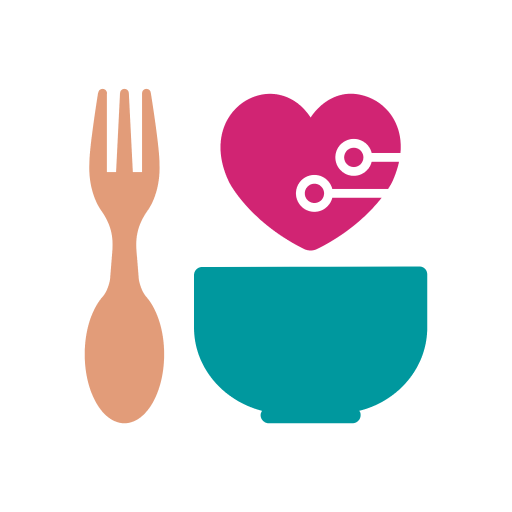What is Low-Carb Diet (LCHF)?
A low-carb diet is an example of dietary modification aimed at reducing obesity and preventing cardiovascular disease. In this day and age where sugary and starchy foods abound, a number of studies have increasingly shown that adherence to a low-carb diet results in greater weight loss, improvement in body composition, and reduction in blood sugar levels among diabetic patients (e.g. Hu et al., 2016; Shai et al., 2008). Indeed, much has been said about the wonders of low carb diet (sometimes low carb high fat, or LCHF) – such as how it can be effortless and hunger-free.
What exactly is a low-carb diet? In most cases, it involves significantly reducing your carbohydrate intake by cutting down on sugar and starchy foods like bread, pasta, rice, beans and potatoes, and including more foods rich in protein, such as meat, fish, and eggs; dietary fiber, such as vegetables that grow above ground; and natural fat, like butter.
The science of low-carb diets
There are basic scientific reasons behind low-carb diets.
First, lowering your carbohydrate intake causes your blood sugar to stabilize and your insulin levels to drop. Low-carb diet is therefore ideal for patients who have diabetes.
Second, lowering your carbohydrate intake also directly affects your energy supply. Because of this, your body burns excess fat to maintain its energy needs. In effect, low-carb diet can facilitate weight loss among patients who are overweight or obese, and also help prevent the risk of cardiovascular disease.
It sounds as though carbohydrates are bad for the body. That is not true. Proponents of low-carb diet largely attribute obesity and cardiovascular disease to the overconsumption of refined sugar and processed carbohydrates, which are commonly found in food products like white bread, white rice and white flour.
Processed carbohydrates, in particular, have low nutritional value. White rice, for example, has its outer layer removed during processing, which translates to the loss of vitamin B, fibre, and other important nutrients.
To make matters worse, most of your favorite dessert items like macaroons, cookies, doughnuts, cakes, and pastries typically contain not only refined sugar and processed carbohydrates, but also saturated fat and trans-fat which, in excess amounts, could potentially be detrimental to your health.
Low-carb diet can therefore produce health-beneficial effects, such as the regulation of blood sugar levels and long-term weight loss. But because low-carb diet deliberately changes a person’s eating habits, there are potential downsides to it, especially if it is not tailored to individual dietary needs, or if one follows it without caution or proper guidance from a dietitian or medical physician.
Possible negative consequences of low-carb diet
You have to let go of other essential nutrients
When you decide to embark on a low-carb diet, you risk forgoing a variety of essential nutrients found in carb-rich foods like whole grains and some starchy fruits and vegetables.
Whole grains are full of dietary fibre, which is essential for proper bowel function and maintaining a healthy cholesterol level. Meanwhile, certain starchy fruits like banana and plantain, and vegetables like potato, cassava, and corn, contain essential vitamins and minerals (e.g. Vitamins B and C, magnesium and potassium), which facilitate many of the important biochemical reactions in your body.
Thus if you embark on a low-carb diet, you must consume more fruits and green leafy vegetables, and perhaps include dietary supplements, in order to maintain your body’s various nutritional needs.
Increased fat intake
Uncontrolled or unmonitored low-carb diet may encourage the consumption of excess fat in place of carbohydrates, ultimately running you the risk of developing health-detrimental effects. For example, avoiding sugary and starchy foods like pasta and bread, but resorting to full-fat dairy products and fatty red meat, can in fact worsen cholesterol levels and increase of the chance of developing cardiovascular disease.
Other reasons for weight gain might be overlooked
While a strict low-carb high-fat diet can initially result in rapid weight loss, it is possible that weight loss may be caused by other factors, such as water or glycogen reduction.
Other undesirable side effects
Sudden carbohydrate deprivation may also result in headache, dizziness, constipation, tiredness, weakness, and ketosis (which in turn causes more headache and even bad breath).
It puts stress on your kidneys
People with impaired kidney functions may also not be able to properly metabolize excess protein. Unfiltered waste products may cause complications and put your kidney at greater risk.
There is ample scientific research illustrating the health-beneficial effects of low-carb diet; however, there is no particular diet that can be universally applied to every individual. Thus, embarking on a particular kind of diet – whether it’s to reduce your blood sugar levels, to lose weight, or even both – requires the help of a dietitian or medical physician who can properly monitor your food consumption and tailor it according to your personal preferences and daily nutritional needs. The onus, however, is largely on your part – your motivation, self-control, and conscientious adherence to the prescribed or recommended diet.






